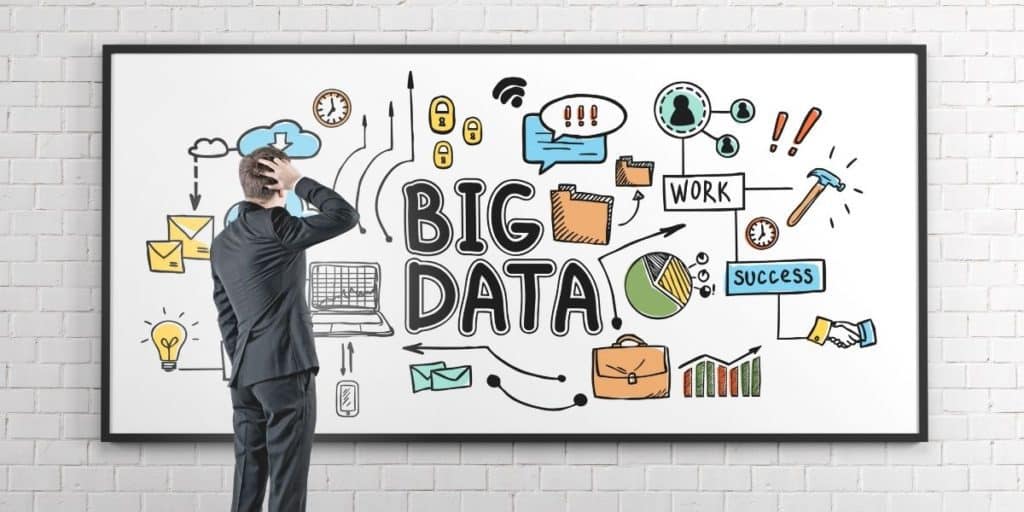Splunk is an incredible software in high demand, which means learning how to use Splunk can help you land a well-paying job. But how hard is it to learn Splunk? Do you need a formal degree, years of education, or just a few months of training?
Splunk is easy to learn but hard to master. The training classes and community forums are excellent places to learn how to create reports, dashboards, alerts, etc. But since it’s a highly customizable tool with lots of features, even professionals with years of experience can’t claim to know it all.
This article will discuss how much time and effort is required to become a Splunk professional and answer the question, “Is Splunk hard to learn?”. We’ll also look at the most valuable resources for learning Splunk.
Important Sidenote: We interviewed numerous data science professionals (data scientists, hiring managers, recruiters – you name it) and identified 6 proven steps to follow for becoming a data scientist. Read my article: ‘6 Proven Steps To Becoming a Data Scientist [Complete Guide] for in-depth findings and recommendations! – This is perhaps the most comprehensive article on the subject you will find on the internet!
Table of Contents
What Splunk Is and Why It’s Not Difficult?
Machine-generated data has grown exponentially in the last decade, and we are generating quintillions of data every day. Splunk is a software-based platform that helps us manage this enormous amount of data. It lets us understand machine data by generating reports, charts, graphs, and other visual elements.

Many of us think of programming languages like Python and R when we hear data reporting and visualization. However, Splunk does not require you to learn any programming language beforehand. In other words, you can become a Splunk professional without knowing how to code. This is good news for those who don’t want to get into coding.
So, how hard is it to learn Splunk? Well, Splunk undoubtedly has a learning curve that can feel steep when you are a beginner. But once you get started, you’ll find that it’s easy to grasp the software basics and obtain the Core Certified User certification. You can watch Splunk videos on YouTube, take the free fundamentals course, and join the Splunk community to start learning.
What About Becoming an Expert in Splunk?
Splunk is an industry-standard tool used by many big and small companies. The software has lots of features, making it useful for various tasks, which means there are many different job roles for Splunk professionals. So the first thing you will need to do is find a use case for Splunk. Once you’ve done that, you can participate in the appropriate training courses.
Individuals often find the course fee prohibitive. But the good news is that many organizations pay for their employees to complete specific training classes to bring more value to the company. So you just have to put in the time and effort to learn the advanced tools and techniques of Splunk.
But how difficult is it to master this software? Since Splunk is a highly customizable tool with loads of features, it’s pretty hard to master. Of course, the more time you spend with the software, the better you will get at it. However, you may be working as a Splunk professional for years and may still not know everything about it.
How Long Does It Take To Learn Splunk?
After learning about Splunk training, you’re probably wondering how much time you’ll have to invest into this software to become a professional. Well, this is where I have to give you the dreaded (and obvious) “it depends.”
Clearly, the more consistent and dedicated you are in your studies, the more quickly you’ll learn how to use Splunk. And the more time you spend playing with the software, the more proficient you’ll become at it. The time required to learn any skill—and not just Splunk—depends on these factors.
However, to give you an idea, you should easily learn the fundamentals of Splunk and prepare for the Core Certified User certification in less than a month. After that, it depends entirely on how much time you give to your studies and how persistent you are. As we’ve discussed, becoming an expert in Splunk can easily take you years—it’s a continuous process.
Resources for Learning Splunk
Now you know that Splunk has a learning curve that gets easier once you learn the basics, but the learning process is long. Now it’s time to discuss the best resources for learning how to use Splunk professionally.
Apart from the official training classes, there are a couple of other ways you can learn Splunk. Although they may not be as comprehensive, they do complement the training classes well. Here’s how you can get started learning Splunk to become a professional:
Splunk Training Classes
The official training classes are an excellent source to learn everything you need to know about Splunk, especially in the beginning. Once you land a job, you learn a lot of things while working. But when you’re starting out, Splunk’s training classes are a great way to build a solid foundation.
If you don’t want to spend thousands of dollars right away, you can take the free fundamentals course. You can then earn the Splunk Certified Core User certification after passing the exam. It can help you get an entry-level job as a Splunk user. We’ve already discussed that companies often pay for advanced Splunk training of their employees. So you may not have to worry about the cost of training classes.
Splunk Community
Splunk has a large, growing user community. Its members are always willing to answer your queries and help you get started with the software. The support is available openly, and anyone can ask questions for experienced Splunk users to reply.
In fact, just opening the forum daily and reading a few discussions will teach you a lot. The platform currently has over 100k question-answers, and you can check it out here. Apart from the Splunk answers community, there’s also the Splunk subreddit where you can get solutions to your problems.
Other Courses
Although the official Splunk training courses are the recommended resources for learning about the software, there are also various unofficial courses on Splunk. For example, Pluralsight offers several Splunk paths to make you proficient at using Splunk in specific ways. Udemy also has lots of beginner courses on Splunk. Apart from paid courses, free video lectures on YouTube can also help you learn Splunk.
Books
There aren’t many good books about Splunk. We’ve already discussed that the best places to learn this software are blogs, YouTube lectures, and courses. With that said, Exploring Splunk is an excellent introductory guide offered by Splunk.

The official Splunk training courses also provide you with the study material in the form of PDFs. Lastly, Splunk documentation is an encyclopedia with tons of valuable information, and it should be your go-to resource for understanding Splunk.
Since your goal is to earn Splunk certifications, it’s critical to study according to the blueprint of whatever exam you’re preparing for. I highly recommend reading the Splunk Certification Exam Study Guide. It tells you how the examination is conducted, but more importantly, it also links to the blueprints of all the different exams.
Author’s Recommendations: Top Data Science Resources To Consider
Before concluding this article, I wanted to share few top data science resources that I have personally vetted for you. I am confident that you can greatly benefit in your data science journey by considering one or more of these resources.
- DataCamp: If you are a beginner focused towards building the foundational skills in data science, there is no better platform than DataCamp. Under one membership umbrella, DataCamp gives you access to 335+ data science courses. There is absolutely no other platform that comes anywhere close to this. Hence, if building foundational data science skills is your goal: Click Here to Sign Up For DataCamp Today!
- IBM Data Science Professional Certificate: If you are looking for a data science credential that has strong industry recognition but does not involve too heavy of an effort: Click Here To Enroll Into The IBM Data Science Professional Certificate Program Today! (To learn more: Check out my full review of this certificate program here)
- MITx MicroMasters Program in Data Science: If you are at a more advanced stage in your data science journey and looking to take your skills to the next level, there is no Non-Degree program better than MIT MicroMasters. Click Here To Enroll Into The MIT MicroMasters Program Today! (To learn more: Check out my full review of the MIT MicroMasters program here)
- Roadmap To Becoming a Data Scientist: If you have decided to become a data science professional but not fully sure how to get started: read my article – 6 Proven Ways To Becoming a Data Scientist. In this article, I share my findings from interviewing 100+ data science professionals at top companies (including – Google, Meta, Amazon, etc.) and give you a full roadmap to becoming a data scientist.
Conclusion
Splunk is extremely popular software that’s used for a variety of tasks by many leading companies. Since data is the future, the popularity of Splunk will only grow. This means there are plenty of job opportunities for Splunk professionals, and they will only increase in the coming years.
Learning the basics of Splunk is not difficult. You have the free fundamentals course, YouTube lectures, Udemy courses, PDFs, and whatnot. However, as you move toward more advanced concepts, the number of available resources decreases. The official training classes are the way to go, along with the Splunk community and documentation.
BEFORE YOU GO: Don’t forget to check out my latest article – 6 Proven Steps To Becoming a Data Scientist [Complete Guide]. We interviewed numerous data science professionals (data scientists, hiring managers, recruiters – you name it) and created this comprehensive guide to help you land that perfect data science job.
Affiliate Disclosure: We participate in several affiliate programs and may be compensated if you make a purchase using our referral link, at no additional cost to you. You can, however, trust the integrity of our recommendation. Affiliate programs exist even for products that we are not recommending. We only choose to recommend you the products that we actually believe in.
Recent Posts
Data science has been a buzzword in recent years, and with the rapid advancements in artificial intelligence (AI) technologies, many wonder if data science as a field will be replaced by AI. As you...
In the world of technology, there's always something new and exciting grabbing our attention. Data science and analytics, in particular, have exploded onto the scene, with many professionals flocking...
